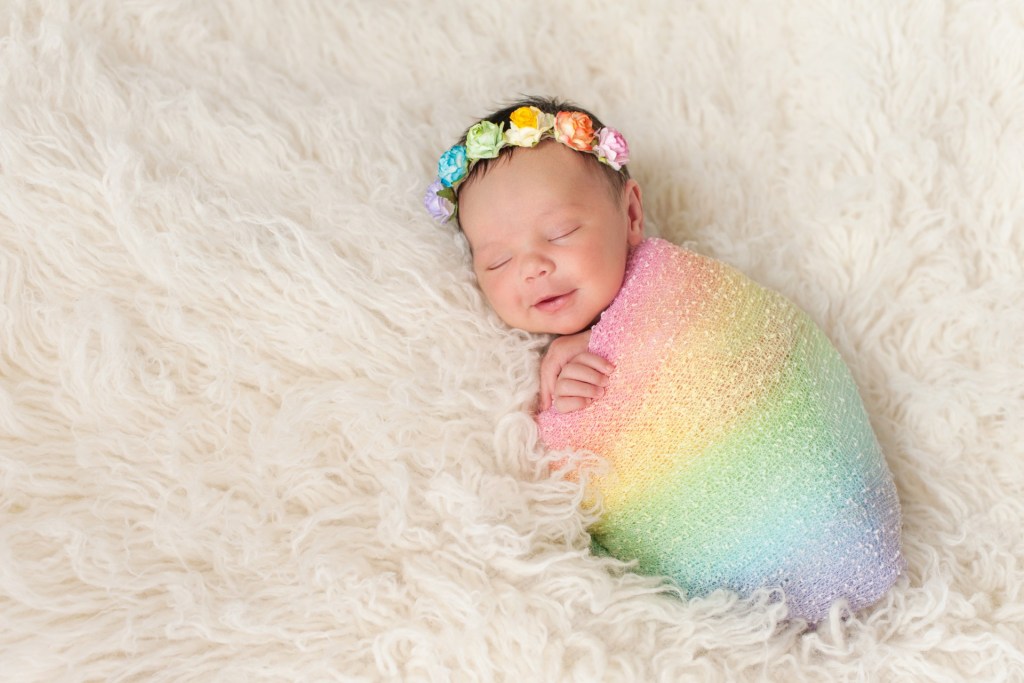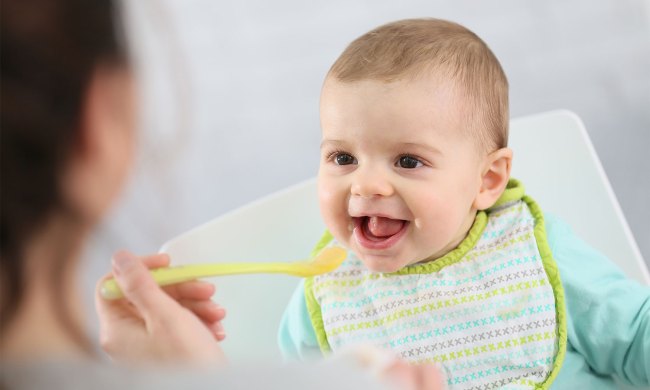If you’ve ever seen a social media post or news article with the term rainbow baby, paired somewhere with a visual cue such as a baby wrapped in a rainbow-themed blanket, you may have wondered “What does rainbow baby mean?”
The term rainbow baby, first coined in 2008 among survivors of infant loss, refers to a beautiful rainbow that appears after a terrible storm. In other words, a rainbow baby is a precious gift to their parents after they suffered a devastating storm of loss from their last pregnancy. It can come in many forms such as miscarriage, stillbirth, or other form of infant loss. It’s become a term of support, comfort, and upliftment that parents and family members desperately need after experiencing one of the most difficult and painful losses a person can endure. The rainbow baby meaning is akin to finding the diamond in the rough, the light at the end of the tunnel, and so forth.

Losing an infant or pregnancy is devastating and can take time to heal from. Some parents choose to not try again, while others find the space in their broken hearts for another hopefully successful pregnancy. Neither is righter than the other, but each made the conscious and informed decision to choose their paths together with their spouse or partner.
Loss is loss
Having someone – or better yet, several “someones” – to lean on after losing your child can make all the difference in the world, as most cultures still view pregnancy and infant loss as taboo. Dr. Rayna Markin, a licensed clinical psychologist and associate professor at Villanova University said during a recent interview for the American Psychological Association that “We’re trained in society to be blind to this loss and not acknowledge it as legitimate, so we lack a language for even talking about it with patients.” In other words — in society — we subliminally view the loss of a pregnancy or child as taboo simply because we lack the ways in which to understand the loss, and thus lacking the ways in which to support the grieving families.
This is especially so of first-time parents. Losing their very first baby, their very first try at growing their family, only to have it stripped away in such a painful and brazen way is devastating. As the village surrounding the grieving first-time parents, finding the right words can be exceedingly difficult, making it even harder to reach out to comfort them. This can sometimes cause the divide to widen even further, perpetuating the stigma around pregnancy and infant loss.
Love is love
One of the most important things to remember when dealing with someone who is grieving a loss of a pregnancy is that their hurt is felt very deeply. Mothers bond with their babies, even in utero. It’s part of what makes a mother’s intuition such a powerful force. They talk and sing to their babies, feeling them move and grow. If the pregnancy is far enough along, some mothers can even experience the joy of feeling their baby moving inside their wombs and connecting with them when they kick. A mother’s love is created the day they learn they’re with child, and losing that child doesn’t douse their passionate love for that baby. Acknowledging the connection between a mother and her unborn child is paramount when dealing with and helping support a parent who’s suffered such a loss.
Dads shouldn’t be forgotten either and can sometimes be an afterthought. Dads are thought of as tough, and often bear much of the weight of being the strong, silent type. However, they also lost their baby. It is an unfathomable sadness, and their love is felt in a much different way – but that does not mean that it’s any less heartfelt.

The message behind the term rainbow baby is one of such true and pure light in a dark time. Seeking out the positive aspect, moms and dads can find peace with their grief after losing something so precious, while also quietly acknowledging the original loss. Using the term has picked up in recent years, with many couples announcing pregnancies and births while also including their story of earlier loss. It gives a name to a very real, and incredibly sad time, while also bringing joy and light into the world. Destigmatizing pregnancy and infant loss can be a slow process, but by using these terms and openly discussing the pain and grief, as a society, we can welcome these grieving parents with open arms, while they write a new ending to a sad story.



